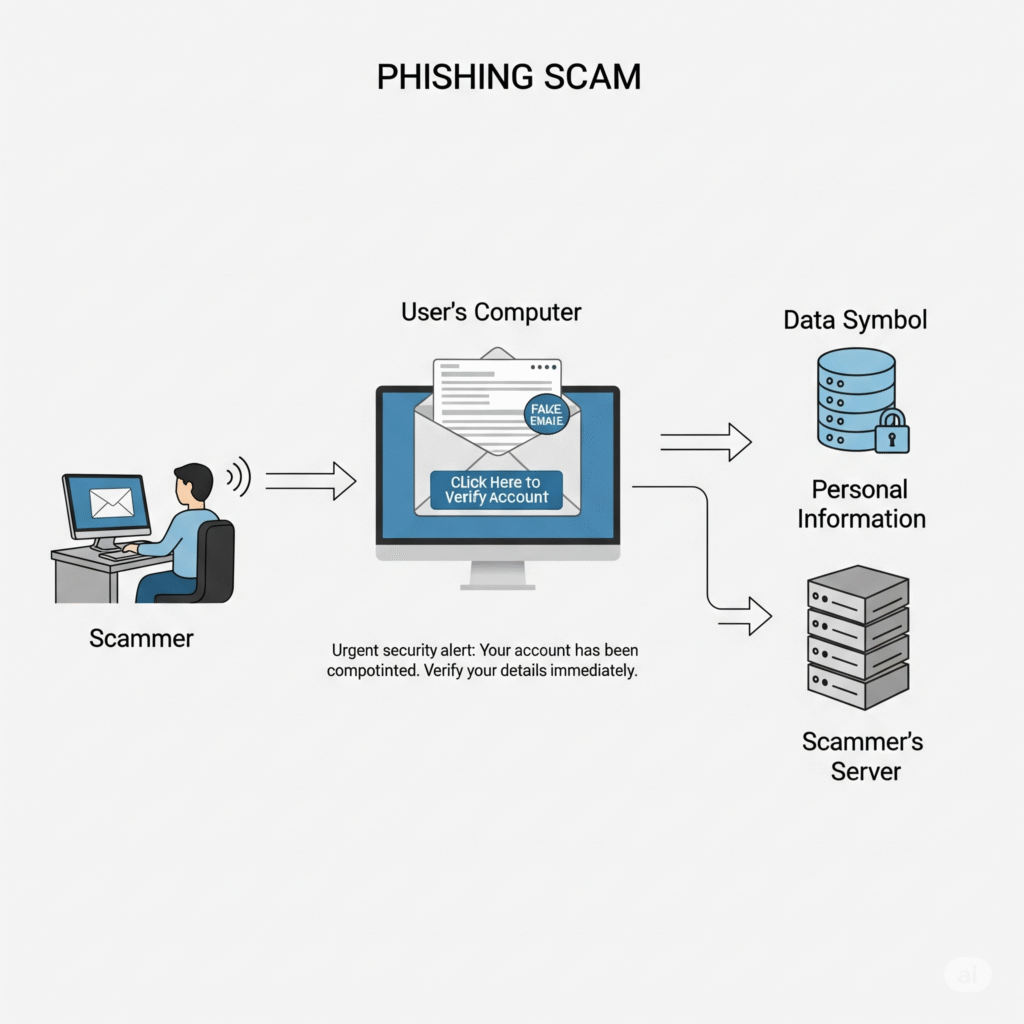The internet has become an indispensable part of our lives, connecting us with information, entertainment, and each other. However, this vast digital landscape also attracts individuals with malicious intent – scammers who aim to steal your money or personal information. The good news is that by understanding their tactics and taking a few simple precautions, you can significantly reduce your risk of falling victim to online scams.
Think of online scams as digital tricks designed to fool you into doing something you wouldn’t normally do, like sharing your password, clicking on a suspicious link, or sending money to an unknown person. Here’s what you need to know to stay safe:
1. Be Wary of Suspicious Emails and Messages (Phishing)
One of the most common scam tactics is phishing. This involves sending emails, text messages, or social media messages that look like they’re from legitimate organizations (like your bank, a government agency, or a popular online service). These messages often create a sense of urgency or fear to trick you into taking immediate action.
Red Flags to Watch For:
- Generic Greetings: Instead of using your name, the message might start with “Dear Customer” or “Valued User.”
- Urgent Requests: Scammers often claim that your account is in danger, or you need to take immediate action to avoid a negative consequence.
- Requests for Personal Information: Legitimate organizations will almost never ask for sensitive information like passwords, credit card details, or Social Security numbers via email or text.
- Suspicious Links: Hover your mouse over links before clicking. If the web address doesn’t match the sender’s official website, don’t click it.
- Poor Grammar and Spelling: Many scam messages contain typos and grammatical errors.
Analogy: Think of phishing emails like someone knocking on your door claiming to be from the gas company and demanding to see your bill and personal information without proper identification. You wouldn’t just open the door and comply; you’d be suspicious.

2. Be Cautious of “Too Good to Be True” Offers
Scammers often lure victims with promises of easy money, free prizes, or unbelievable discounts. If an offer seems too good to be true, it almost certainly is.
Examples:
- Lottery scams claiming you’ve won a large sum of money but need to pay a fee to claim it.
- Investment scams promising guaranteed high returns with little to no risk.
- Fake job offers that require you to send money upfront for training or equipment.
Analogy: Think of these offers like a stranger on the street offering you a suitcase full of cash for a small “processing fee.” It sounds tempting, but your common sense should tell you it’s likely a trick.
3. Verify Requests Through Official Channels
If you receive a suspicious message from a company or organization you do business with, don’t reply directly to the message. Instead, contact them through official channels, such as their official website or phone number (which you can find independently, not through the suspicious message).
Example: If you receive an email claiming to be from your bank asking you to verify your account details, go directly to your bank’s website or call their customer service line to confirm if the request is legitimate.
4. Protect Your Personal Information
Be very careful about what personal information you share online and with whom.
- Use strong, unique passwords for all your online accounts.
- Enable two-factor authentication (2FA) whenever possible for an extra layer of security.
- Be cautious about sharing sensitive information on social media.
- Shred documents containing personal information before throwing them away.
Analogy: Think of your personal information like valuable jewels. You wouldn’t leave them lying around in public; you’d keep them locked away securely.
5. Keep Your Software Updated
Software updates for your computer, smartphone, and apps often include security patches that protect you from known vulnerabilities that scammers can exploit. Make sure your operating systems, browsers, and security software are always up to date.
6. Trust Your Gut
If something online feels “off” or makes you uncomfortable, it’s best to err on the side of caution. Don’t be afraid to say no, hang up, or delete a suspicious message.
In Simple Terms:
Staying safe online is about being aware, cautious, and exercising common sense. By recognizing the red flags of scams and taking simple steps to protect your personal information, you can significantly reduce your risk of becoming a victim.
Stay tuned to networkbasics101.com for more tips on navigating the digital world safely!
